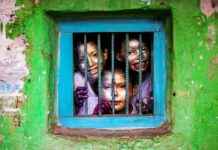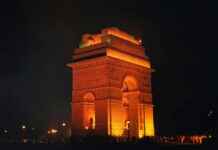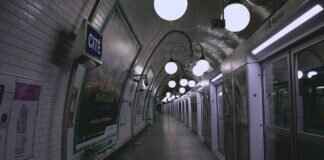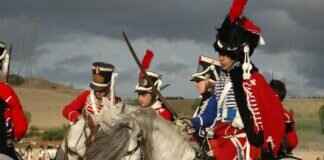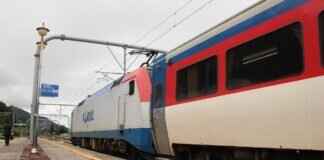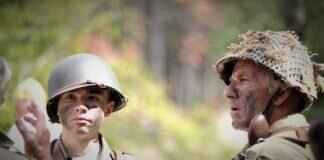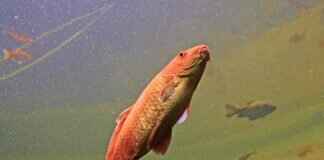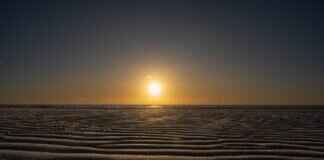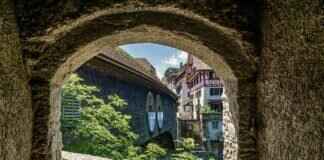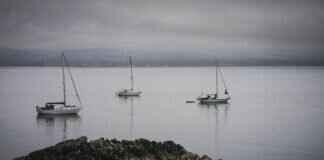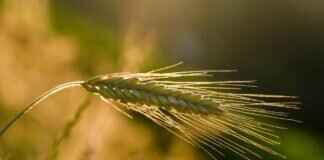This article explores the rich culinary landscape of New York City, highlighting the fusion of Indian and American flavors that create unique dining experiences.
The Rise of Fusion Cuisine in NYC
In recent years, fusion cuisine has emerged as a prominent trend in New York City, where culinary traditions from around the world blend seamlessly. The intersection of Indian and American flavors is particularly noteworthy, as chefs experiment with traditional recipes while incorporating local ingredients and cooking techniques. This culinary evolution not only reflects the city’s diverse population but also caters to the adventurous palates of its residents and visitors.
Restaurants across NYC are now offering innovative dishes that marry the bold spices of Indian cuisine with classic American fare. From tandoori chicken burgers to butter chicken mac and cheese, these unique combinations showcase the creativity and adaptability of chefs in the city. The rise of food trucks and pop-up eateries has further fueled this trend, allowing culinary innovators to reach a broader audience eager for new flavors.
Popular Indian-American Dishes
The fusion of Indian and American flavors has given rise to a variety of popular dishes that are now staples in NYC’s vibrant food scene. One standout is the naan pizza, which replaces traditional pizza crust with soft, pillowy naan bread, topped with a range of Indian-inspired ingredients such as paneer, tikka masala, and cilantro chutney. Another favorite is the chicken tikka quesadilla, where spiced chicken is combined with melted cheese and served with a tangy mango salsa.
Additionally, Indian-inspired brunch dishes like masala omelets and spiced pancakes have gained traction, appealing to the growing number of health-conscious diners seeking flavorful yet nutritious options. These dishes not only highlight the versatility of Indian spices but also cater to the evolving tastes of New Yorkers.
Iconic Restaurants to Experience Indian-American Fusion
New York City is home to numerous restaurants that specialize in Indian-American fusion cuisine. Some must-visit establishments include Junoon, where Michelin-starred chef Vikas Khanna blends traditional Indian cooking with contemporary techniques, and Chote Nawab, known for its innovative takes on classic dishes. Another notable spot is MasalaWala, which offers a unique twist on American comfort food by infusing it with Indian spices.
These restaurants not only provide a unique dining experience but also emphasize the importance of using fresh, local ingredients. Many chefs are committed to sustainability, sourcing produce from local farmers and incorporating seasonal flavors into their menus.
The Role of Spices in Flavor Development
Spices are fundamental to Indian cuisine and play a crucial role in the development of fusion dishes. Ingredients such as cumin, coriander, and turmeric add depth and complexity to American dishes, transforming familiar flavors into something extraordinary. For instance, a simple grilled cheese sandwich can be elevated with the addition of garam masala or curry powder, creating a delightful balance between comfort and adventure.
Moreover, the use of spices can enhance the nutritional profile of meals, offering health benefits that go beyond flavor. Chefs are increasingly aware of the potential of spices to improve digestion and boost immunity, making them a valuable addition to any dish.
Cultural Influences on Culinary Trends
Cultural exchanges significantly influence culinary trends, and the blending of Indian and American cultures has shaped the food landscape in NYC. The city’s rich tapestry of immigrant communities fosters an environment where culinary experimentation thrives. As chefs from diverse backgrounds come together, they share their heritage and culinary techniques, leading to innovative dishes that reflect a melting pot of flavors.
Events such as food festivals and cooking competitions further promote this cultural exchange, allowing chefs to showcase their creativity and introduce new dishes to a broader audience. These events not only celebrate the diversity of flavors but also encourage collaboration among chefs, leading to the continuous evolution of fusion cuisine in the city.
Street Food: A Taste of Indian-American Flavors
Street food is a vibrant aspect of New York’s culinary scene, and Indian-American fusion is making a significant impact. Food trucks and street vendors offer an array of dishes that combine the bold flavors of Indian cuisine with the convenience of American street food. Popular options include spicy samosa sliders and chicken tikka tacos, which provide a quick yet satisfying meal for those on the go.
The accessibility of street food allows for a democratization of cuisine, where people from all walks of life can experience the exciting flavors of Indian-American fusion. As the street food scene continues to grow, so does the opportunity for culinary innovation, with vendors constantly experimenting to create new and exciting dishes.
Health Consciousness in Fusion Cuisine
As health trends evolve, so too does fusion cuisine. Many Indian-American restaurants are adapting their menus to cater to health-conscious diners, offering lighter options that still pack a flavorful punch. Dishes featuring whole grains, fresh vegetables, and lean proteins are becoming increasingly popular, allowing diners to indulge without compromising their health goals.
For instance, quinoa bowls with spiced lentils and roasted vegetables are a common sight on menus, providing a nutritious and delicious meal option. Additionally, chefs are exploring plant-based alternatives, creating dishes that appeal to vegans and vegetarians while still honoring the rich flavors of Indian cuisine.
Chef Profiles: Innovators in Indian-American Cuisine
Highlighting influential chefs in the fusion scene, several culinary innovators are redefining Indian and American dishes with their creative approaches. Chefs like Vikas Khanna and Meherwan Irani have gained recognition for their ability to blend traditional flavors with modern techniques. Their passion for cooking and commitment to using local, sustainable ingredients have set a new standard in the culinary world.
These chefs not only create delicious dishes but also serve as mentors to aspiring cooks, encouraging the next generation to explore the possibilities of fusion cuisine. Through their work, they inspire others to experiment with flavors and push the boundaries of traditional cooking.
Cooking Classes: Learning the Art of Fusion
For those interested in exploring this culinary fusion at home, cooking classes available in NYC focus on Indian-American cuisine. These classes offer hands-on experiences, teaching participants how to combine spices and ingredients to create their own fusion dishes. From learning the basics of Indian cooking to mastering the art of pairing flavors, these classes provide valuable skills for home cooks.
Many classes also emphasize the importance of sourcing fresh, local ingredients, encouraging participants to connect with their community and support local farmers. This approach not only enhances the cooking experience but also fosters a deeper appreciation for the culinary arts.
The Impact of Food Festivals on Fusion Cuisine
Food festivals play a pivotal role in popularizing fusion cuisine, celebrating the diverse culinary traditions that exist in NYC. Events such as the New York City Food and Wine Festival and Smorgasburg showcase a variety of Indian-American dishes, allowing chefs to share their creations with a wider audience. These festivals not only highlight the creativity of chefs but also encourage collaboration and innovation within the culinary community.
Through tastings, cooking demonstrations, and chef panels, attendees gain insight into the art of fusion cuisine and the cultural influences that shape it. These events serve as a platform for culinary exploration, inspiring both chefs and food lovers alike to embrace new flavors and techniques.
Pairing Drinks with Indian-American Dishes
The right beverage can elevate a meal, and pairing drinks with Indian-American fusion dishes is no exception. Wine and cocktail pairings can enhance the flavors of dishes, creating a harmonious dining experience. For example, a spicy lamb curry pairs beautifully with a fruity red wine, while a chicken tikka masala is complemented by a crisp white wine.
Craft cocktails infused with Indian spices, such as cardamom or ginger, are also gaining popularity, offering a unique twist on classic drinks. These pairings not only enhance the flavors of the meal but also showcase the versatility of Indian ingredients in the beverage world.
Future Trends in Indian-American Fusion Cuisine
Looking ahead, the future of Indian-American fusion cuisine appears bright, with evolving tastes and the continuous influence of global culinary practices. As the culinary landscape continues to change, chefs will likely explore new flavor combinations and techniques, pushing the boundaries of traditional cooking.
With an increasing focus on sustainability and health-conscious dining, fusion cuisine will adapt to meet the demands of modern diners. As more people seek unique dining experiences, the fusion of Indian and American flavors will continue to thrive, offering exciting and innovative dishes that celebrate the best of both culinary worlds.

The Rise of Fusion Cuisine in NYC
Savoring NYC: Where Indian and American Flavors Meet in the Kitchen
This article explores the rich culinary landscape of New York City, highlighting the fusion of Indian and American flavors that create unique dining experiences.
Fusion cuisine has rapidly gained popularity in New York City, transforming the way people perceive and enjoy food. This culinary trend is characterized by the blending of various cooking styles and ingredients, creating dishes that are both innovative and delicious. One of the most exciting developments in this realm is the combination of Indian and American flavors, which has resulted in a plethora of unique dining options across the city.
New York City is known for its cultural diversity, which is reflected in its culinary scene. The city’s rich tapestry of immigrant communities has introduced a wide range of culinary traditions, and the fusion of Indian and American cuisines is a prime example of this cultural exchange. Indian cuisine, renowned for its bold spices and rich flavors, complements the hearty and comforting nature of American food, resulting in dishes that are both familiar and exotic.
One of the driving forces behind the rise of fusion cuisine in NYC is the increasing interest in global flavors among diners. As food enthusiasts seek new experiences, chefs are inspired to experiment with traditional recipes, incorporating elements from both cuisines to create something entirely new. For instance, the classic American burger has been reimagined with Indian spices and toppings, leading to creations such as the tandoori chicken burger or the butter chicken slider.
Moreover, the accessibility of ingredients has played a crucial role in the evolution of fusion cuisine. With the rise of specialty grocery stores and online shopping, chefs can easily source authentic Indian spices and ingredients, allowing them to incorporate these flavors into their dishes. This accessibility has made it easier for chefs to experiment and innovate, leading to a surge in Indian-American fusion offerings on restaurant menus.
Restaurants that specialize in Indian-American fusion cuisine have begun to pop up throughout the city, catering to a growing audience eager to explore these unique flavor combinations. Establishments like Junoon and Chote Nawab have garnered attention for their creative takes on traditional dishes, seamlessly blending Indian spices with American comfort food.
In addition to restaurants, food trucks and pop-up eateries have also embraced this trend, bringing Indian-American fusion to the streets of NYC. These mobile dining options often feature dishes that are easy to eat on the go, such as masala fries or curry wraps, appealing to busy city dwellers looking for a quick yet flavorful meal.
As the demand for fusion cuisine grows, it is clear that the combination of Indian and American flavors is not just a passing trend but a significant aspect of New York City’s culinary identity. The ongoing exploration of these culinary boundaries promises to keep the dining scene vibrant and exciting for years to come.

Popular Indian-American Dishes
Savoring NYC: Where Indian and American Flavors Meet in the Kitchen
This article explores the rich culinary landscape of New York City, highlighting the fusion of Indian and American flavors that create unique dining experiences.
In the bustling food scene of New York City, a delightful array of Indian-American dishes has emerged, showcasing the innovative fusion of flavors from both culinary traditions. These dishes not only reflect the diverse cultural influences present in the city but also highlight the creativity of chefs who are eager to experiment and push culinary boundaries.
One of the standout dishes is the Butter Chicken Pizza. This unique creation takes the beloved Indian dish of butter chicken and transforms it into a pizza topping. The savory, creamy sauce pairs perfectly with melted cheese on a crispy crust, offering a delightful twist that appeals to both Indian and Italian food lovers. Diners can often find this dish in trendy pizzerias that specialize in fusion cuisine, making it a must-try for anyone looking to explore the culinary landscape of NYC.
Another popular dish is the Masala Burger. This American classic is reimagined with a spiced patty made from ground lamb or chicken, infused with traditional Indian spices such as cumin, coriander, and garam masala. Topped with a tangy mint chutney and served on a fluffy bun, the masala burger encapsulates the essence of fusion cuisine, making it a favorite among locals and tourists alike.
For those with a sweet tooth, the Chai Latte Cupcake represents the perfect marriage of Indian flavors and American dessert culture. These cupcakes are infused with the rich spices of chai tea, such as cardamom and cinnamon, and are often topped with a creamy frosting that complements the warm spices. Bakeries across the city have embraced this dessert, creating a delightful experience for anyone looking to satisfy their cravings.
Another dish that has gained popularity is the Paneer Tikka Quesadilla. This dish combines the traditional Indian paneer tikka, marinated in yogurt and spices, with the classic Mexican quesadilla. The result is a melty, cheesy delight that offers a burst of flavors in every bite. Served with a side of tangy salsa or cooling raita, this fusion dish reflects the culinary creativity that NYC is known for.
Additionally, the Dal Makhani Mac and Cheese has become a favorite among comfort food enthusiasts. This dish takes the classic American mac and cheese and incorporates the rich, creamy lentil dish known as dal makhani. The combination of cheesy pasta with the hearty lentils creates a satisfying and indulgent meal that showcases the best of both cuisines.
In conclusion, the fusion of Indian and American flavors has given rise to a plethora of unique dishes in NYC. From butter chicken pizza to chai latte cupcakes, these meals reflect the city’s vibrant culinary scene and the innovative spirit of its chefs. Whether dining in a trendy restaurant or grabbing a bite from a food truck, food lovers in NYC have a wealth of options to explore the delightful intersection of these two rich culinary traditions.

Iconic Restaurants to Experience Indian-American Fusion
Savoring NYC: Where Indian and American Flavors Meet in the Kitchen
New York City is renowned for its diverse culinary scene, and among its many offerings, Indian-American fusion cuisine stands out as a vibrant and flavorful trend. This unique blend marries the rich spices and techniques of Indian cooking with the comfort and familiarity of American dishes. In this section, we will explore some iconic restaurants that showcase this exciting fusion, providing diners with a memorable experience that celebrates both cultures.
When it comes to Indian-American fusion, NYC boasts a plethora of restaurants that creatively blend these two culinary worlds. Below are some must-visit establishments that not only offer delicious food but also provide a unique dining atmosphere:
- Junoon: Located in the heart of the Flatiron District, Junoon is a Michelin-starred restaurant that elevates Indian cuisine to new heights. The chef, Vikas Khanna, combines traditional Indian recipes with modern techniques, resulting in dishes like Butter Chicken Pizza and Masala Lamb Burgers. The ambiance is equally impressive, with a chic design that complements the innovative menu.
- Chote Nawab: This restaurant is known for its casual yet sophisticated vibe. Chote Nawab offers a delightful fusion of Indian street food with American favorites. Their Paneer Tikka Tacos and Gobi Manchurian Sliders are crowd favorites, showcasing how Indian flavors can seamlessly blend into American-style cuisine.
- Indian Accent: Renowned for its inventive approach, Indian Accent offers a modern take on Indian classics. The chef, Manish Mehrotra, is celebrated for his ability to incorporate American ingredients into traditional dishes. Signature items include Blue Cheese Naan and Short Rib Nihari, which highlight the delicious possibilities of fusion cuisine.
- Dhaba: This restaurant captures the essence of Indian roadside eateries while infusing American elements into its menu. Dhaba’s Chicken Tikka Quesadilla and Masala Fries are perfect examples of how Indian spices can enhance American favorites, making it a popular spot for both locals and tourists.
- MasalaWala: A family-owned restaurant in the Lower East Side, MasalaWala offers a cozy atmosphere and a menu filled with fusion delights. Their Chaat Nachos and Spicy Chicken Wings are perfect for sharing, providing a fun way to experience the best of both worlds.
These restaurants not only serve delicious food but also create an environment where diners can appreciate the cultural exchange that occurs through cuisine. Each establishment offers a unique take on Indian-American fusion, making them essential stops for anyone looking to explore this innovative culinary landscape.
As you embark on your culinary journey through NYC, be sure to visit these iconic restaurants that celebrate the rich flavors and traditions of both Indian and American cuisine. Each bite offers a glimpse into the creativity and passion that chefs pour into their dishes, making dining out an unforgettable experience.

The Role of Spices in Flavor Development
Spices are the heart and soul of Indian cuisine, offering a vibrant palette of flavors and aromas that elevate any dish. When it comes to fusion cuisine, particularly the blend of Indian and American flavors, spices play a crucial role in enhancing the overall dining experience. This section explores how Indian spices transform traditional American dishes into something extraordinary, creating a culinary symphony that delights the senses.
In Indian cooking, spices are not merely ingredients; they are essential components that define the character of a dish. Common spices such as cumin, coriander, turmeric, and cardamom bring depth and complexity to the flavors. When these spices are introduced into American dishes, they create a unique fusion that marries the familiar with the exotic. For instance, a classic American burger can be elevated with the addition of garam masala, giving it a warm, aromatic twist that surprises and delights the palate.
One of the most significant aspects of spices is their ability to enhance flavors through the Maillard reaction, which occurs during cooking. This chemical reaction between amino acids and reducing sugars gives browned food its distinctive flavor. By incorporating spices like smoked paprika or curry powder into marinades or rubs, chefs can create a rich, savory complexity that complements the natural flavors of meats and vegetables. The result is a harmonious blend that resonates with both Indian and American culinary traditions.
Moreover, spices are known for their health benefits, which can also attract health-conscious diners. For example, turmeric, with its active compound curcumin, is celebrated for its anti-inflammatory properties. By using spices in American dishes, chefs not only enhance flavor but also promote a healthier dining experience. This trend has led to the rise of dishes like turmeric-infused quinoa bowls or cumin-spiced roasted vegetables, which are both nutritious and flavorful.
In the realm of desserts, spices can also play a pivotal role. Traditional American sweets can be given an Indian twist with the incorporation of spices like cardamom or cloves. For instance, a classic apple pie can be enhanced with a hint of cardamom, providing an unexpected yet delightful flavor that resonates with those familiar with Indian desserts. This cross-pollination of flavors not only broadens the culinary landscape but also introduces diners to new taste experiences.
Furthermore, the use of spices in fusion cuisine is not just about flavor; it also reflects cultural storytelling. Each spice carries with it a history, a tradition, and a narrative that connects people to their roots. By embracing these spices in American dishes, chefs are not only creating innovative meals but also fostering a deeper appreciation for the rich tapestry of culinary traditions that exist within the melting pot of New York City.
As the culinary scene continues to evolve, the role of spices in flavor development will remain integral to the fusion of Indian and American cuisines. Chefs and food enthusiasts alike are discovering the endless possibilities that arise when these two worlds collide, paving the way for a vibrant future in the culinary arts.

Cultural Influences on Culinary Trends
Savoring NYC: Where Indian and American Flavors Meet in the KitchenNew York City is a melting pot of cultures, and its culinary scene is a testament to this rich diversity. Among the most fascinating developments in recent years is the fusion of Indian and American cuisines. This cultural exchange has not only enriched the dining experiences available but has also significantly influenced culinary trends across the city. In this section, we will explore how these two cultures have intertwined, shaping the food landscape in NYC.
The impact of cultural exchanges on culinary trends cannot be overstated. In New York City, the blending of Indian and American culinary traditions has led to the creation of innovative dishes that reflect the diverse backgrounds of the city’s inhabitants. As immigrants from India settled in the United States, they brought with them their culinary heritage, which has been embraced and adapted by the local food scene.
One of the most notable examples of this cultural fusion is the emergence of Indian-inspired fast food. Restaurants and food trucks across NYC have begun to offer items such as tandoori chicken tacos and butter chicken burgers, combining traditional Indian flavors with classic American formats. This not only caters to the evolving tastes of New Yorkers but also highlights the adaptability of Indian cuisine.
Moreover, the influence of Indian spices and cooking techniques has found its way into mainstream American dishes. For example, chefs are increasingly incorporating spices like cumin, coriander, and turmeric into sauces and marinades, giving a new twist to familiar American favorites. This trend illustrates how cultural exchanges can lead to a broader appreciation of flavors and techniques, fostering culinary creativity.
Furthermore, the rise of the health-conscious consumer has prompted many Indian-American fusion restaurants to innovate their menus, incorporating superfoods and healthier cooking methods. Dishes like quinoa biryani or cauliflower tikka reflect a shift towards more nutritious options while retaining the essence of traditional Indian cuisine.
Food festivals in NYC have also played a crucial role in promoting Indian-American fusion cuisine. Events such as the New York City Food and Wine Festival often feature chefs who specialize in this fusion, providing a platform for them to showcase their culinary creations. These festivals not only celebrate the flavors of Indian and American cuisines but also highlight the stories behind the dishes, creating a deeper connection between the food and its cultural origins.
In conclusion, the cultural exchange between Indian and American culinary traditions has significantly influenced the food landscape in New York City. From innovative fusion dishes to the incorporation of spices and health-conscious options, this blending of cultures continues to evolve, enriching the dining experiences available to New Yorkers. As culinary trends shift, the legacy of this cultural fusion will undoubtedly leave a lasting impact on the city’s vibrant food scene.

Street Food: A Taste of Indian-American Flavors
Street food is an integral part of New York City’s vibrant culinary landscape, reflecting the city’s rich tapestry of cultures and flavors. Among the many offerings, Indian-American street food stands out as a unique blend of traditional Indian cuisine and American culinary influences. This fusion has evolved over the years, creating exciting dishes that are both familiar and innovative. Let’s explore how this delicious intersection of flavors has come to life in the streets of NYC.
The evolution of Indian-American street food can be traced back to the growing Indian diaspora in the United States. As Indian immigrants settled in various neighborhoods, they brought their culinary traditions with them, adapting their recipes to local ingredients and tastes. This led to the creation of dishes that resonate with both Indian and American palates, making them accessible and appealing to a broader audience.
One of the most popular street food items you’ll encounter is Indian-style tacos. These delightful creations combine the soft, warm tortillas commonly found in Mexican cuisine with traditional Indian fillings such as chicken tikka or paneer. Topped with fresh cilantro, onions, and a drizzle of tangy yogurt sauce, Indian-style tacos offer a burst of flavors that perfectly encapsulates the essence of fusion cuisine.
Another must-try dish is the chaat, a traditional Indian snack that has been reimagined for the street food scene. Chaat typically features a mix of crispy fried dough, potatoes, chickpeas, and an array of spices, topped with yogurt and chutney. In NYC, you can find variations that incorporate American ingredients, such as fried chicken or mac and cheese, giving this classic dish a modern twist.
Additionally, the dosadilla, a fusion of the Indian dosa and the quesadilla, has gained popularity among food enthusiasts. This dish features a crispy dosa filled with melted cheese and various fillings, such as spiced vegetables or meats, making it a delightful option for those seeking a quick yet satisfying meal.
Street vendors and food trucks across NYC have embraced the trend of Indian-American street food, offering these delicious options at affordable prices. Many of these vendors are passionate about their craft and strive to maintain the authenticity of their dishes while adapting to local tastes. This commitment to quality and flavor has made Indian-American street food a beloved choice among both locals and tourists.
As the culinary scene continues to evolve, the future of Indian-American street food looks promising. With an increasing focus on health-conscious options, many vendors are incorporating organic and locally sourced ingredients into their offerings. This not only enhances the flavor but also caters to the growing demand for healthier dining options.
In conclusion, Indian-American street food in New York City is a testament to the city’s dynamic food culture. It showcases how traditional Indian flavors can harmoniously blend with American influences to create exciting new dishes. Whether you’re a longtime fan of Indian cuisine or a newcomer eager to explore, the street food scene in NYC offers a delicious adventure waiting to be savored.

Health Consciousness in Fusion Cuisine
As the culinary landscape continues to evolve, there is a noticeable shift towards **health-conscious dining**. This trend is particularly evident in the vibrant world of fusion cuisine, where Indian and American flavors converge. With an increasing number of diners prioritizing their health, Indian-American restaurants in New York City are adapting their menus to meet these demands while still delivering the rich, bold flavors that define their culinary heritage.
One of the most significant changes in Indian-American restaurants is the emphasis on **fresh, locally sourced ingredients**. Chefs are increasingly opting for organic vegetables, lean proteins, and whole grains to create dishes that are both nutritious and satisfying. For instance, traditional Indian dishes like **dal** and **paneer** are being reimagined with quinoa and brown rice, providing diners with healthier alternatives that retain their authentic flavors. This shift not only caters to health-conscious consumers but also supports local farmers and sustainable practices.
In addition to ingredient sourcing, the preparation methods used in fusion cuisine are also evolving. Many restaurants are moving away from deep-frying and heavy cream-based sauces, opting instead for **grilling, steaming, and roasting**. These cooking techniques not only enhance the natural flavors of the ingredients but also reduce the calorie count of the dishes. For example, a classic **butter chicken** can be transformed into a lighter version by using grilled chicken marinated in yogurt and spices, served with a fresh tomato and cilantro salsa instead of a heavy sauce.
Moreover, the rise of plant-based diets has influenced the menu offerings in Indian-American fusion restaurants. With more diners seeking vegetarian and vegan options, chefs are creatively incorporating **plant-based proteins** such as lentils, chickpeas, and tofu into their dishes. This not only aligns with health trends but also introduces diners to the diverse flavors and textures of Indian cuisine. Dishes like **chickpea curry tacos** or **tofu tikka wraps** are perfect examples of how traditional Indian flavors can be adapted to suit modern dietary preferences.
Another important aspect of health consciousness in fusion cuisine is the growing awareness of dietary restrictions. Many Indian-American restaurants are now offering gluten-free, dairy-free, and nut-free options to accommodate a wider range of diners. This inclusivity allows those with specific dietary needs to enjoy the rich flavors of Indian-American fusion without compromising their health.
Furthermore, the beverage offerings at these restaurants are also evolving. Many establishments are now featuring **natural, low-calorie drinks**, such as homemade fruit-infused waters, herbal teas, and organic wines, which pair beautifully with the spices and flavors of Indian-American dishes. This focus on health extends beyond the food itself and enhances the overall dining experience.
In conclusion, the fusion of Indian and American cuisines is not just about blending flavors but also about adapting to the changing preferences of health-conscious diners. By prioritizing fresh ingredients, healthier cooking methods, and accommodating dietary restrictions, Indian-American restaurants are redefining what it means to enjoy fusion cuisine. This evolution not only reflects a commitment to health but also celebrates the rich culinary traditions that both cultures have to offer.

Chef Profiles: Innovators in Indian-American Cuisine
Savoring NYC: Where Indian and American Flavors Meet in the KitchenNew York City is a melting pot of cultures, and its culinary scene is no exception. Among the most exciting developments in recent years is the rise of Indian-American fusion cuisine. This innovative approach combines the rich, aromatic flavors of Indian cooking with the comfort and familiarity of American dishes. In this section, we will delve into the profiles of influential chefs who are at the forefront of this culinary revolution, showcasing their unique contributions and creative approaches.
In the vibrant world of Indian-American fusion cuisine, a number of chefs have emerged as true visionaries. These culinary innovators are not only redefining traditional dishes but are also creating entirely new gastronomic experiences that delight food lovers across New York City.
- Chef Maneet Chauhan: A prominent figure in the Indian-American culinary scene, Chef Chauhan is known for her ability to blend classic Indian flavors with American comfort food. Her restaurant, Chaat Cafe, features dishes like butter chicken sliders and tandoori chicken tacos, which have become local favorites. Chauhan’s approach emphasizes the use of fresh, locally sourced ingredients, while her vibrant personality brings a unique flair to her culinary creations.
- Chef Vishwesh Bhatt: As the chef and owner of Snackbar in Oxford, Mississippi, Chef Bhatt has made waves in the fusion scene with his inventive takes on Indian street food. His signature dish, masala fried chicken, perfectly marries the Southern classic with Indian spices, creating a mouthwatering experience that resonates with diners. Bhatt’s dedication to showcasing regional Indian flavors while respecting American culinary traditions makes him a standout in the industry.
- Chef Priya Krishna: A cookbook author and chef, Krishna is known for her modern interpretations of Indian cuisine. Her restaurant, Indian Accent, offers a menu that features innovative dishes like dal makhani mac and cheese and pav bhaji burgers. Krishna emphasizes sustainability and health-conscious ingredients, making her dishes not only delicious but also mindful of modern dietary preferences.
- Chef Suvir Saran: A pioneer in Indian-American fusion, Chef Saran is celebrated for his ability to blend traditional Indian cooking techniques with seasonal American ingredients. His restaurant, Dévi, has received numerous accolades for dishes like curry-spiced lamb chops and coconut curry risotto. Saran’s culinary philosophy centers around storytelling through food, allowing diners to experience the rich tapestry of Indian culture in each bite.
These chefs not only contribute to the culinary landscape of New York City but also inspire a new generation of cooks to explore the possibilities of fusion cuisine. Their innovative dishes reflect a deep respect for both Indian and American culinary traditions, showcasing how flavors can transcend cultural boundaries.
As the popularity of Indian-American fusion cuisine continues to grow, the influence of these chefs will undoubtedly shape the future of dining in NYC. Their creative approaches and passion for culinary innovation are paving the way for exciting new trends and flavors, ensuring that the fusion of these two rich culinary heritages remains vibrant and dynamic.

Cooking Classes: Learning the Art of Fusion
Savoring NYC: Where Indian and American Flavors Meet in the Kitchen
New York City is a melting pot of cultures, and nowhere is this more evident than in its culinary scene. Among the most exciting trends is the fusion of Indian and American cuisines, resulting in innovative dishes that tantalize the taste buds. For those eager to dive deeper into this culinary art, cooking classes focusing on Indian-American fusion offer an excellent opportunity to learn and experiment.
For anyone with a passion for cooking, NYC offers an array of cooking classes that specialize in the unique blend of Indian and American flavors. These classes cater to various skill levels, from beginners to seasoned chefs looking to refine their techniques. Participants can expect to learn about the essential spices that define Indian cuisine, as well as how to incorporate them into classic American dishes.
- Hands-On Experience: Many cooking schools in NYC provide hands-on instruction, allowing students to create dishes under the guidance of experienced chefs. This interactive approach fosters a deeper understanding of the fusion process.
- Expert Instructors: Classes are often led by chefs who specialize in fusion cuisine, offering insights into the cultural significance behind the dishes and the techniques used to create them.
- Diverse Class Offerings: From casual workshops to intensive courses, there are options available for every schedule and interest. Some classes focus on specific dishes, while others cover a broader range of topics, including meal prep and presentation.
One popular class is the Indian-American Fusion Cooking Workshop, where participants can learn to make dishes such as tandoori burgers or curried mac and cheese. These workshops not only teach cooking techniques but also emphasize the importance of flavor balancing, showcasing how Indian spices can enhance traditional American meals.
Another exciting option is the Street Food Fusion Class, where students recreate iconic street food dishes that merge the best of both worlds. Imagine learning how to make chicken tikka tacos or paneer quesadillas! These classes often include a cultural component, where participants explore the history and evolution of these dishes.
In addition to traditional cooking schools, many local chefs offer private classes in their homes or studios, providing a more personalized experience. This setting allows for tailored instruction, focusing on individual preferences and dietary restrictions.
Moreover, cooking classes often culminate in a communal meal, where participants can enjoy the fruits of their labor together. This aspect not only enhances the learning experience but also fosters a sense of community among food lovers.
For those who are unable to attend in-person classes, online options are also available. Many chefs and culinary schools have adapted to the digital age, offering virtual classes that can be attended from the comfort of home. These classes often include ingredient kits shipped directly to participants, ensuring they have everything needed to recreate the dishes.
In conclusion, cooking classes focused on Indian-American fusion cuisine in NYC provide a unique opportunity to explore a vibrant culinary landscape. Whether you are a novice cook or an experienced chef, these classes offer valuable insights into the art of fusion cooking, enriching your culinary repertoire and tantalizing your taste buds.

The Impact of Food Festivals on Fusion Cuisine
Food festivals have become a significant platform for showcasing the vibrant and evolving fusion cuisine landscape, particularly in a melting pot like New York City. These events not only celebrate diverse culinary traditions but also serve as a bridge between cultures, allowing attendees to experience the innovative blend of flavors that defines Indian-American cuisine. This section delves into how food festivals in NYC are instrumental in popularizing this unique culinary fusion.
New York City hosts a myriad of food festivals throughout the year, each offering a unique opportunity to explore the rich tapestry of flavors that define its culinary scene. Among these, festivals dedicated to Indian cuisine have gained immense popularity, reflecting the city’s diverse population. Events such as the NYC Curry Festival and the Queens Night Market often feature stalls that highlight the intersection of Indian and American culinary traditions.
- NYC Curry Festival: This festival celebrates the versatility of curry, where chefs experiment with traditional Indian spices and American ingredients to create dishes that are both familiar and novel.
- Queens Night Market: A vibrant gathering that showcases food from around the world, including Indian-American fusion dishes that attract food enthusiasts and curious diners alike.
Food festivals not only provide a platform for chefs to showcase their creativity but also foster a sense of community. Chefs from various backgrounds come together to share their interpretations of Indian-American dishes, often collaborating to create unique offerings. For instance, a traditional butter chicken might be reimagined as a butter chicken burger, blending the comfort of American fast food with the rich flavors of Indian cuisine.
These events also encourage local communities to engage with their cultural heritage. Attendees often have the chance to participate in cooking demonstrations, where they can learn about the spices and techniques that make Indian cuisine so unique. This hands-on experience deepens their appreciation for the fusion dishes presented at the festival.
Food festivals play a crucial role in spurring culinary innovation. Chefs are encouraged to experiment with new combinations and techniques, often leading to the creation of signature dishes that become staples in their restaurants. For example, many chefs have begun to incorporate American comfort foods, such as mac and cheese, into Indian-inspired dishes, resulting in creations like masala mac and cheese or tandoori chicken nachos.
Moreover, these festivals often attract food critics and influencers, which can significantly boost a chef’s visibility and business. Positive reviews and social media buzz can propel a dish into the spotlight, further popularizing the fusion cuisine trend.
Beyond the culinary aspect, food festivals serve as a platform for cultural exchange and awareness. They provide a space for attendees to learn about the history and significance of the dishes being served. For instance, during a cooking demonstration, a chef might explain the origins of dal makhani or the significance of spices like cumin and coriander in Indian cooking. This educational component enriches the festival experience, fostering a deeper connection between the food and its cultural roots.
In summary, food festivals in NYC play a pivotal role in popularizing Indian-American fusion cuisine by celebrating diversity, fostering community, enhancing culinary innovation, and building cultural awareness. Through these events, attendees not only enjoy unique dishes but also engage with the rich traditions and stories behind them, making the culinary landscape of New York City even more vibrant and exciting.

Pairing Drinks with Indian-American Dishes
The art of pairing beverages with food can significantly enhance the dining experience, especially when it comes to the vibrant flavors found in Indian-American fusion cuisine. The right drink can complement the spices and textures of the dishes, creating a harmonious balance that elevates each bite. This section explores various options, including cocktails and wines, that can be perfectly matched with these unique culinary creations.
When considering cocktails, the key is to focus on the flavor profiles of the dishes. For instance, dishes that are rich in spices, such as butter chicken burgers or tandoori tacos, benefit from cocktails that can either contrast or complement their bold flavors. A Mango Mojito, made with fresh mint, lime, and mango puree, offers a refreshing counterpoint to the richness of these dishes. The acidity of the lime cuts through the creaminess of the butter sauce, while the sweetness of the mango enhances the dish’s spices.
In contrast, for dishes with a smoky flavor, like tandoori chicken wings, a cocktail like a Spicy Paloma can be an excellent choice. This drink combines tequila, grapefruit soda, and a hint of jalapeño, providing a zesty kick that complements the smoky notes of the chicken. The spiciness of the cocktail mirrors the heat often found in Indian cuisine, creating a delightful synergy.
Moving on to wine pairings, the selection can be equally exciting. For creamy dishes, such as paneer tikka mac and cheese, a Chardonnay is a classic choice. The wine’s buttery texture and notes of apple and pear can enhance the dish’s flavors, creating a luxurious mouthfeel. Alternatively, for more tomato-based dishes like butter chicken pizza, a medium-bodied Merlot can provide a nice balance. The wine’s fruitiness can complement the sweetness of the tomatoes while also standing up to the spices.
Another important aspect to consider is the temperature of the drinks. Chilled beverages can provide a refreshing contrast to hot, spicy dishes. For example, a light beer or a sparkling wine can cleanse the palate between bites, making the overall experience more enjoyable. The carbonation in these drinks helps to cut through the richness and enhances the flavors of the food.
For those who prefer non-alcoholic options, there are plenty of exciting choices as well. Chai iced tea can be a delightful pairing with spicy dishes, offering a sweet and spiced flavor that complements the food. Similarly, a coconut water can provide a refreshing, hydrating element that balances the heat of the spices.
In summary, the right beverage pairing can transform an ordinary meal into an extraordinary dining experience. By carefully considering the flavors, textures, and temperatures of both the food and drinks, diners can create a memorable fusion of Indian and American tastes that tantalizes the palate. Whether opting for cocktails, wines, or non-alcoholic beverages, the possibilities are endless, making each meal a unique culinary adventure.

Future Trends in Indian-American Fusion Cuisine
As we look to the future, the culinary landscape of Indian-American fusion cuisine is poised for exciting developments. With the rise of global connectivity and a growing appreciation for diverse flavors, the fusion of Indian spices and American comfort food is evolving in ways that resonate with both traditionalists and modern diners alike. This article delves into the anticipated trends that will shape this unique culinary genre.
Emphasis on Authenticity and Innovation
One of the most significant trends is the growing demand for authenticity paired with innovation. Diners are increasingly seeking genuine experiences that reflect the true essence of both Indian and American cuisines. Chefs are responding by incorporating traditional techniques and recipes while adding modern twists. For example, classic Indian dishes like butter chicken might be reimagined as a butter chicken burger, merging the flavors of India with the quintessential American fast-food experience.
Health-Conscious Fusion
With the rising awareness of health and wellness, many Indian-American fusion restaurants are adapting their menus to include healthier options. This trend includes the use of organic ingredients, plant-based proteins, and gluten-free alternatives. Expect to see dishes that marry traditional Indian spices with American superfoods, creating meals that are not only flavorful but also nutritious. For instance, quinoa biryani and cauliflower tikka tacos are examples of how chefs are catering to health-conscious diners without sacrificing taste.
Global Influences and Cross-Cultural Collaborations
The influence of other global cuisines is also becoming more pronounced in Indian-American fusion. As chefs experiment with flavors from Latin America, Southeast Asia, and the Mediterranean, we can anticipate the emergence of dishes that showcase a broader palette of tastes. For instance, a tandoori chicken quesadilla or masala-infused ramen could become popular staples, reflecting a rich tapestry of culinary influences.
Technology and Culinary Innovation
Technology is playing a crucial role in shaping the future of fusion cuisine. With the advent of food delivery apps and online cooking classes, chefs can reach wider audiences and share their innovative dishes. Additionally, techniques like molecular gastronomy are being adopted to create unique dining experiences. Imagine dishes that incorporate Indian flavors through techniques like spherification or foam, providing diners with an exciting journey of flavor and texture.
Sustainability in Fusion Cuisine
Sustainability is becoming a key concern in the food industry, and Indian-American fusion cuisine is no exception. Many chefs are focusing on sourcing local and sustainable ingredients, reducing food waste, and implementing eco-friendly practices in their kitchens. This shift not only benefits the environment but also enhances the quality of the dishes served. Diners are increasingly supportive of restaurants that prioritize sustainability, making it a vital trend for the future.
Conclusion
As we move forward, the future of Indian-American fusion cuisine looks promising, characterized by authenticity, health consciousness, global influences, technological innovation, and sustainability. These trends are not just reshaping the dining experience but also fostering a deeper appreciation for the rich tapestry of flavors that both Indian and American cuisines offer. Diners can look forward to a culinary adventure that continues to evolve and surprise.



